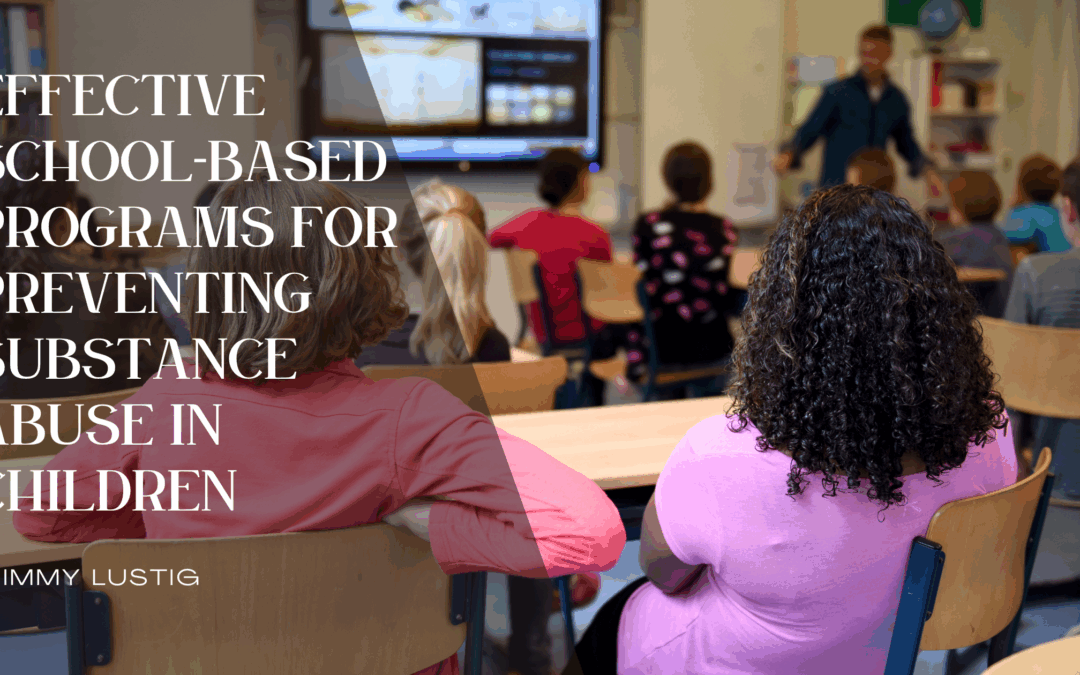School-based programs play a vital role in preventing substance abuse among children by providing education, support, and resources that help students make informed decisions and develop healthy behaviors. These programs are designed to address the issue of substance abuse early and to create a supportive school environment that fosters resilience and well-being.
Effective school-based programs typically incorporate a comprehensive approach that includes education, skills development, and support. Educational components focus on teaching students about the risks and consequences of substance abuse. These programs often use evidence-based curricula that cover topics such as the effects of drugs and alcohol on the body and mind, the social and legal consequences of substance abuse, and the benefits of staying drug-free.
Skills development is another crucial aspect of effective prevention programs. Schools implement programs that teach students essential life skills, such as decision-making, stress management, and resistance to peer pressure. By equipping students with these skills, programs help them navigate social situations and make healthier choices. Role-playing exercises, group discussions, and interactive activities are often used to engage students and reinforce these skills.
Support components of school-based programs involve creating a positive and supportive school environment. Schools can implement policies that promote healthy behaviors and provide resources for students who may be struggling with substance abuse. This includes establishing clear anti-drug policies, offering counseling services, and creating a network of support within the school. Peer support programs, where students are trained to provide support and guidance to their peers, can also be effective in fostering a supportive environment.
Parental involvement is another key element of effective prevention programs. Schools can engage parents by offering workshops, informational sessions, and resources that help them understand the risks of substance abuse and how to support their children. By working together with parents, schools can create a consistent message about the importance of staying drug-free and provide additional support for students.
Collaboration with community organizations and local agencies can enhance the effectiveness of school-based programs. Partnerships with local health departments, substance abuse treatment centers, and community organizations can provide additional resources, expertise, and support. Community involvement can also help in organizing events, workshops, and campaigns that raise awareness about substance abuse prevention.
Evaluating the effectiveness of school-based programs is crucial for ensuring their success. Schools should regularly assess the impact of their programs through surveys, feedback from students and parents, and analysis of program outcomes. This evaluation helps identify areas for improvement, measure the effectiveness of different components, and ensure that the program remains relevant and effective.
In conclusion, effective school-based programs for preventing substance abuse in children combine education, skills development, and support to create a positive and healthy school environment. By providing students with knowledge, life skills, and resources, and by involving parents and community partners, these programs help prevent substance abuse and promote overall well-being. Continuous evaluation and improvement are key to ensuring the long-term success and impact of these prevention efforts.

